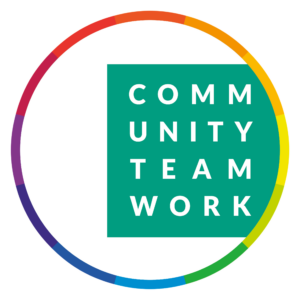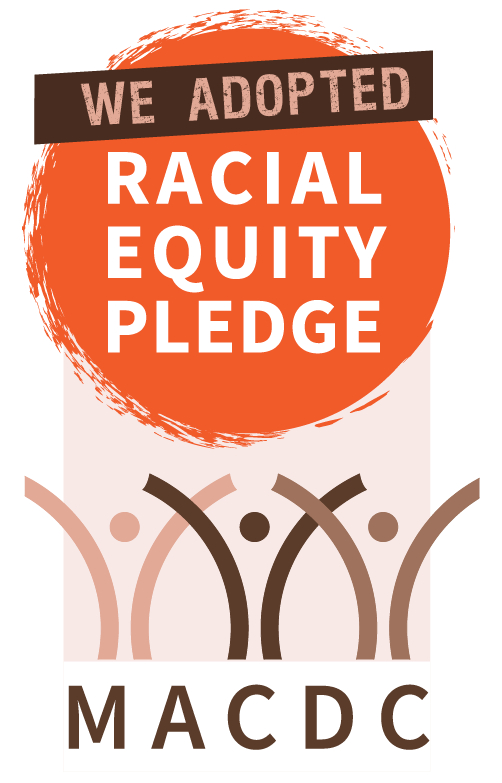Parent/Caregiver Guide to Helping Families Cope with the Coronavirus Disease 2019 (COVID-19)
At this time, information about COVID-19 is rapidly evolving as new details are confirmed and new questions emerge. In the event of an outbreak in your community, as a parent/caregiver, your first concern is about how to protect and take care of your children and family. Knowing important information about the outbreak and learning how to be prepared can reduce your stress and help calm likely anxieties. This resource will help you think about how an infectious disease outbreak might affect your family—both physically and emotionally—and what you can do to help your family cope.
What You Should Know
- Coronaviruses are a large family of viruses that cause illness ranging from the common cold to more severe diseases. COVID-19 is caused by a novel coronavirus; this means it is a new strain that has not been previously identified in humans.
- COVID-19 is a respiratory disease that is mainly spread person-to-person. Currently, there is no available vaccine or curative treatment, so the best preventative strategy is to avoid exposure.
- So far, children appear to be much less affected by COVID-19, which was also seen after other coronavirus outbreaks.
- Children with pre-existing illnesses may have different risk, so you should discuss this with your child’s medical team.
- To reduce the spread of the virus, a variety of approaches will be used, including keeping those who are sick away from others and promoting healthy hygiene strategies. Additional recommendations for ways to contain the virus’s spread could include canceling of events that attract large numbers of people; closing schools, public transit or businesses; and required quarantine, which is the separation and restriction of movement of people who might have been exposed to the virus.
Readiness
Preparing your Family for a Potential Infectious Disease Outbreak
- Being prepared is one of the best ways to lessen the impact of an infectious disease outbreak like COVID-19 on your family. Here are some steps that you can take to be better prepared:
Information & Communication
- Identify how you will keep up with the rapidly changing information on COVID-19.
- In rapidly changing health events and outbreaks such as COVID-19, there can be large amounts of incorrect or partially correct information that can add to your stress and confusion as a parent/caregiver. Identify a few trusted sources of health information.
The NCTSN relied on the CDC resources to create this document. Get the most up-to-date and accurate information at:
CDC: https://www.cdc.gov/coronavirus/2019-ncov/index.html
CDC: information on children and COVID 2019: https://www.cdc.gov/coronavirus/2019-ncov/specific-groups/children-faq.html and https://healthychildren.org/English/health-issues/conditions/chest-lungs/Pages/ 2019-Novel-Coronavirus.aspx
Plan how you want to discuss COVID-19 with your family. Be sure to include:
- What the current disease outbreak is
- How it is contracted
- What are the possible dangers
- Protective steps being taken in the community/nation/global community
- Protective steps everyone in the family can take
- Hold your family discussion in a comfortable place and encourage family members to ask questions. Consider having a separate discussion with young children in order to use language they can understand and to address specific fears or misconceptions they may have.
- Create a list of community resources that will be helpful during an outbreak. Make sure you know their emergency telephone numbers, websites, and official social media accounts. These may include: your family’s schools, doctors, public health authorities, social services, community mental health center, and crisis hotlines.
- Develop a plan for maintaining contact with friends and family members via telephone and internet in the event that isolation or quarantine is recommended.
- Check in with your children’s school about potential homeschool and distance learning opportunities that may be offered during a school closure. Also, if your child receives additional services at school, ask how these will be handled during a closure (e.g., meals, therapeutic services).
Reducing Your Family’s Risk: Hygiene, Medical Care & Supplies
Have all family members practice preventive behaviors including:
- Regularly washing hands for 20 seconds with soap and water (length of the A-B-C song) or use alcohol-based hand sanitizer that contains at least 60% alcohol.
- Avoiding close contact with people who are sick.
- Staying home when sick.
- Covering the mouth and nose with a tissue or with the bend/crook of the arm when coughing or sneezing.
Keep basic health supplies on hand (e.g., soap, alcohol-based hand sanitizer, tissues, and a thermometer).
Make sure you have a supply of medications taken regularly.
If your child takes medication for a chronic condition, talk with your child’s medical provider about plans to get a supply at home that will last through any period of home isolation for your family.
Have your family work together to gather items that might be needed during an outbreak. These include drinking water, nonperishable food, and cash. Be sure to include activities, books, and games for children in case a lengthy time at home is recommended. Remember to include batteries in your item list if those are needed for certain activities and games.
Response
Coping with the Stress of an Infectious Disease Outbreak like COVID-19
Even if your family is prepared, an outbreak can be very stressful. To help your family cope with this stress, following these recommendations can help:
Information & Communication
- Keep updated about what is happening with the outbreak and additional recommendations by getting information from credible media outlets, local public health authorities, and updates from public health websites (e.g., CDC).
- Seek support and continued connections from friends and family by talking to them on the telephone, texting, or communicating through email or social media. Schools may have additional ways to stay in contact with educators and classmates.
- Although you need to stay informed, minimize exposure to media outlets or social media that might promote fear or panic. Be particularly aware of (and limit) how much media coverage or social media time your children are exposed to about the outbreak.
- E-mail and texting may be the best ways to stay in contact with others during an outbreak, as the Internet may have the most sensational media coverage and may be spreading rumors. Check in regularly with your children about what they have viewed on the Internet and clarify any misinformation.
- Focus on supporting children by encouraging questions and helping them understand the current situation.
- Talk about their feelings and validate these Help them express their feelings through drawing or other activities
- Clarify misinformation or misunderstandings about how the virus is spread and that not every respiratory disease is COVID-19
- Provide comfort and a bit of extra patience
- Check back in with your children on a regular basis or when the situation changes
NOTE: During an outbreak, stigma and rejection can occur against individuals who live in affected communities, against health-care workers, and individuals with other illnesses.
Scheduling & Activities
- Even if your family is isolated or quarantined, realize this will be temporary.
- Keep your family’s schedule consistent when it comes to bedtimes, meals, and exercise.
- Make time to do things at home that have made you and your family feel better in other stressful situations, such as reading, watching movies, listening to music, playing games, exercising, or engaging in religious activities (prayer, participating in services on the Internet).
- Have children participate in distance learning opportunities that may be offered by their schools or other institutions/organizations.
- Recognize that feelings such as loneliness, boredom, fear of contracting disease, anxiety, stress, and panic are normal reactions to a stressful situation such as a disease outbreak.
- Help your family engage in fun and meaningful activities consistent with your family and cultural values.
Hygiene & Medical Care
- Find ways to encourage proper hygiene and health promoting behavior with your children (create drawings to remember family routines; sing a song for length needed to wash hands like the A-B-C or Happy Birthday song, twice). Include them in household jobs or activities so they feel a sense of accomplishment. Provide praise and encouragement for engaging in household jobs and good hygiene.
- Reassure your children that you will take them to the pediatrician and get medical care if needed. Explain, however, that not every cough or sneeze means that they or others have COVID-19.
Self Care & Coping
- Modify your daily activities to meet the current reality of the situation and focus on what you can accomplish.
- Shift expectations and priorities to focus more on what gives you meaning, purpose, or fulfillment.
- Give yourself small breaks from the stress of the situation.
- Attempt to control self-defeating statements and replace them with more helpful thoughts. Here’s a helpful checklist for identifying unhealthy thoughts and coping with them: https://arfamiliesfirst.com/wp-content/uploads/2013/05/Cognitive-Distortions.pdf.
- Remember, you are a role model for your children. How you handle this stressful situation can affect how your children manage their worries.
- If your family has experienced a serious illness or the death of a loved one, find ways to support each other, including: Reach out to your friends and family, talking to them about the death of your loved one. Use telephone, email, or social media to communicate if necessary.
- Find ways to honor the death of your loved one. Some activities may be done as a family, while additional activities may done individually.
- Seek religious/spiritual help or professional counseling for support. This may be available online or by telephone during an outbreak.
Helping Children Cope
Your children may respond differently to an outbreak depending on their age. Below are some reactions according to age group and the best ways you can respond:
Age Group- Preschool:
- Reactions
- Fear of being alone, bad dreams
- Speech difficulties
- Loss of bladder/bowel control, constipation, bed-wetting
- Change in appetite
- Increased temper tantrums, whining, or clinging behaviors
- How to help
- Patience and tolerance
- Provide reassurance (verbal and physical)
- Encourage expression through play, reenactment, story-telling
- Allow short-term changes in sleep arrangements
- Plan calming, comforting activities before bedtime
- Maintain regular family routines
- Avoid media exposure
School-Age (ages 6-12):
- Reactions
- Irritability, whining, aggressive behavior
- Clinging, nightmares
- Sleep/appetite disturbance
- Physical symptoms (headaches, stomachaches
- Withdrawal from peers, loss of interest
- Competition for parents’ attention
- Forgetfulness about chores and new information learned at school
- How to help
- Patience, tolerance, and reassurance
- Play sessions and staying in touch with friends through telephone and Internet
- Regular exercise and stretching
- Engage in educational activities (workbooks, educational games)
- Participate in structured household chores
- Set gentle but firm limits
- Discuss the current outbreak and encourage questions. Include what is being done in the family and community
- Encourage expression through play and conversation
- Help family create ideas for enhancing health promotion behaviors and maintaining family routines
- Limit media exposure, talking about what they have seen/heard including at school
- Address any stigma or discrimination occurring and clarify misinformation
Adolescent (ages 13-18):
- Reactions:
- Physical symptoms (headaches, rashes, etc.)
- Sleep/appetite disturbance
- Agitation or decrease in energy, apathy
- Ignoring health promotion behaviors
- Isolating from peers and loved ones
- Concerns about stigma and injustices
- Avoiding/cutting school
- How to help
- Patience, tolerance, and reassurance
- Encourage continuation of routines
- Encourage discussion of outbreak experience with peers, family (but do not force)
- Stay in touch with friends through telephone, Internet, video games
- Participate in family routines, including chores, supporting younger siblings, and planning strategies to enhance health promotion behaviors
- Limit media exposure, talking about what they have seen/heard including at school
- Discuss and address stigma, prejudice and potential injustices occurring during
Seeking Additional Help
If you or a loved one is having a difficult time coping with the outbreak and want to seek outside help, there are ways to get that help. For example:
- Get support regarding your anxiety or stress by speaking to a trained counselor at SAMHSA Disaster Distress Helpline at 1-800-985-5990 or by texting TalkWithUS 66746.
- Contact your physician or your insurance company (if they have a consultation line) to ask health-related questions or to seek mental health support.
- Learn more ways to help your family. Additional resources can be accessed at: NCTSN.org www.healthychildren.org www.cdc.gov/coronavirus/2019-ncov/specific-groups/children-faq.html
www.nctsn.org










